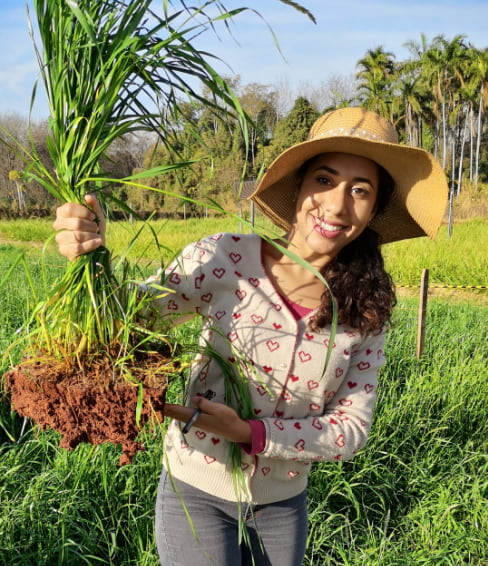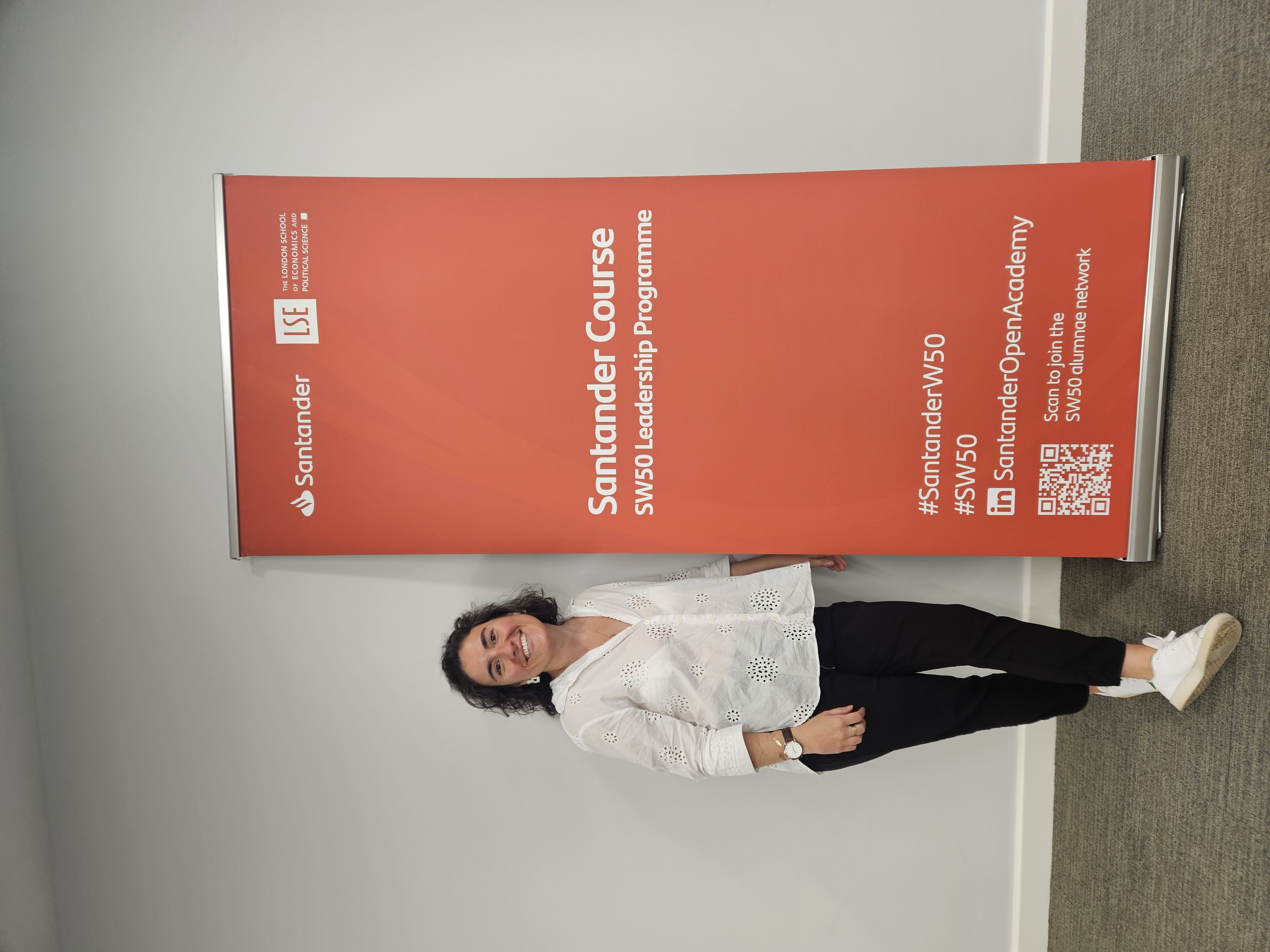“I am a scientist and English is the language of science. We need to know English to share our research.” - Aline Martineli Batista, PhD in Soils and Plant Nutrition from the University of São Paulo
Good English skills are important in many career paths because it’s often used as a common language to share ideas in international settings. This is certainly the case in science, where international journals and conferences are usually in English.
This is why Aline Martineli Batista, who earned her PhD in Soils and Plant Nutrition from the University of São Paulo, realised she needed to develop her English skills. For this reason, whilst taking her PhD, Aline decided to participate in a previous call for Santander Course | English to Boost your Career, launched by Banco Santander in collaboration with University of Pennsylvania.
This is a 5-week online course directed at non-naative English speakers looking to improve their English language skills in order to advance their careers. Depending on their goals, professionals can choose one of the three courses on offer: English for Professional Development, English for STEM or English for Business and Entrepreneurship.
As a scientist, Aline took the English for STEM pathway, and here, she talks more about her experience, how it developed her research skills and taught her to make comparisons and discuss change, use language of cause and effect, descriptive language, and deploy reading strategies.
“We had space to share our understanding and opinion of the subject matter and we received feedback about all assignments, detailed feedback!”
Aline Martineli BatistaWhat were the difficulties you had to overcome to get to where you are today?
I’m a black woman from a family without a lot of resources. All my life I studied in public school and my basic education was poor. That is why, when I went to university and I started my graduate degree in Agronomic Engineering, I had to study a lot to get good grades and qualify for a master’s degree. I already knew that I would like to be a scientist. However, English was a challenge.
English is the language of science, and academic journals and international conferences are almost always in this language. In addition, I observed that researchers that spoke good English boosted their career and gained important positions. Nevertheless, where I grew up, no one spoke English and I knew it was a skill I would need to get a good job, but English schools in Brazil are expensive.
Due to this fact, my skills were very limited and I found reading academic articles difficult, but I knew that I needed to work on my English to advance in this field. For this reason, the first thing that I did when I started my master’s degree was to enrol in an English school.
However, after I finished my master’s degree, I saw that it was necessary to keep improving and I looked for free opportunities to keep developing my skills. That’s when I discovered the Santander Course | English to Boost your Career at the University of Pennsylvania.
What language skills have you been able to develop during this experience?
During the course, we had virtual classes with a native instructor and a lot of group activities which enabled us to speak, read and listen a lot. The main subject of the course was related to an interesting subject: global climate change. Topics covered include the chemistry and impacts of climate change, new energy systems, and advances in climate-focused nanotechnology. Therefore, we learned many technical words while improving our core skills.
An important part of speaking in English is not to be afraid or ashamed to speak. The course really helped boost my confidence. The methodologies included many group activities and the teacher paid attention to every detail and facilitated the learning process really well. For example, one activity included two articles on the same subject, one with easier English and another with advanced. This was a very good strategy to acquire vocabulary.
What changes have you experienced personally and professionally?
Overall, the course was of great value personally and professionally, as it improved not only my English skills but also my confidence to share my ideas and knowledge about different subjects.
In fact, growing my confidence was significant. Before the course started, I had given some presentations in English at events or courses, but as much as I had prepared, I felt really nervous. I wondered if people would understand me or if I would be able to understand other researchers' questions.
For instance, I participated in an international event where I had the opportunity to talk about my work to an eminent professor in my field of study. He’s from Germany, so we communicated in English. However, after this course, I believe I feel much more prepared for these situations.
On the other hand, the course allowed contact with many people from different states of Brazil and other countries, such as Mexico, Argentina, Chile and Uruguay, facilitating cultural exchange.
What are your future plans and your next professional steps?
Now, I’m trying to extend this opportunity to other Brazilians by helping run an accessible English course. In addition, I finished my PhD in July 2022 and I’m eager to get new opportunities to demonstrate my knowledge. I have some possible routes for my professional development and I’d be delighted if I had the chance to pursue any of them.
I could either get a job in a company in the research and development department, mainly working with improvements in soil sustainability. Alternatively, I could seek a professorship or postdoctoral position at a university. Additionally, I’d also like to have the opportunity to work abroad in an English-speaking country, so to carry on developing my career, I need to keep working on my English.
With the aim of boosting, empowering and promoting female talent in order to achieve effective equality, Banco Santander is launching Santander Open Academy, the training space you need to keep growing.
Join our global platform for learning and professional development and access courses at zero cost, training content in a wide range of formats and scholarships from leading universities and institutions.
If, like us, you believe that we should never stop learning, sign up here and find out what we have for you!

Aline Martineli Batista, PhD in Soils and Plant Nutrition from the University of São Paulo
More interesting posts to read...
-
 18/11/2024 | Andrea Larraya, People Business Partners Director at Commercetools
18/11/2024 | Andrea Larraya, People Business Partners Director at Commercetools“It was a very uplifting experience to be surrounded by women who understand the unique challenges we face.” - Andrea Larraya, People Business Partners Director at Commercetools
Card text -


